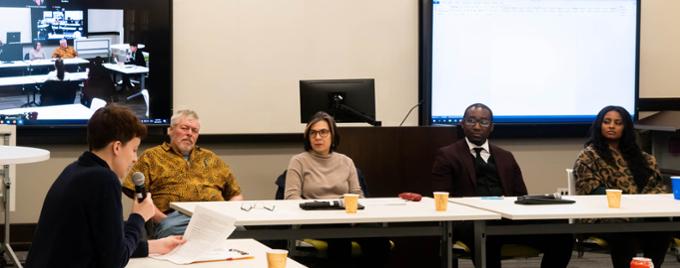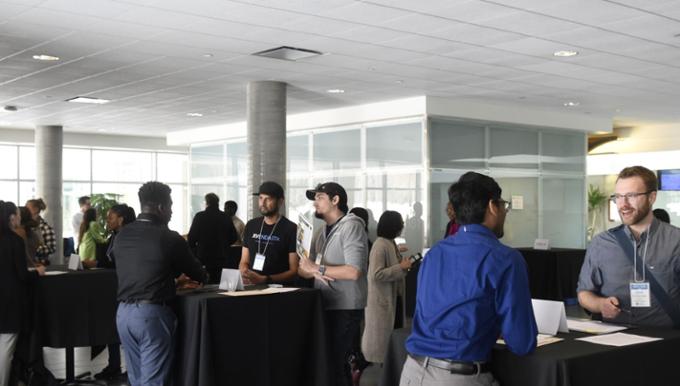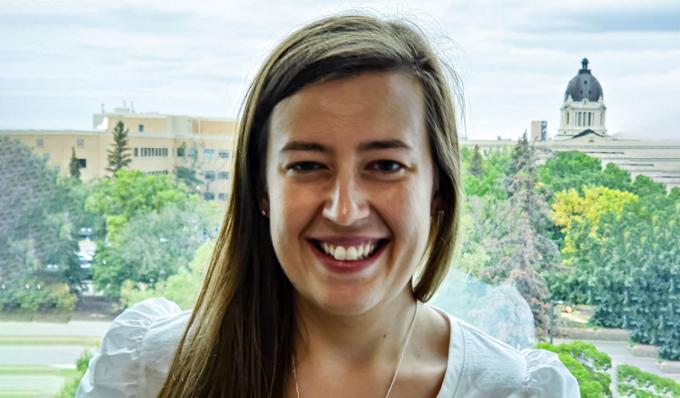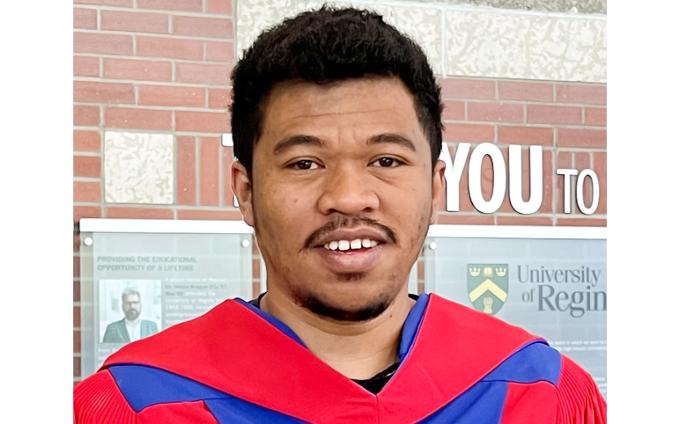
Graduate Studies and Research
Changing the World, Together
The University of Regina has a long history of producing successful graduates. Our grads are creators, innovators, problem solvers and big thinkers.
We are proud of our innovative programs for professional and academic careers. We offer more than 50 Master’s, 20 Doctoral and 13 graduate certificate programs. We currently lead Canadian comprehensive universities in research impact and international research collaboration, and we’ve emerged as a centre of excellence on a number of research fronts.
Graduate students enjoy great access to professors and opportunities for one-on-one mentorship. Combine that with an exceptional collection of student support services and you find a great environment to pursue your graduate work.
Our holistic approach to graduate education through offers student-centred experiences in an academically nurturing environment that prioritizes: professional skills development, inclusive programming, experiential opportunities and global engagement.
Whether you’re looking to become a world-renowned expert in your field, to stand out from the crowd in today’s competitive job market or to enhance your skills and move up in your career, a U of R graduate degree is the next step in achieving your goals. Choose from PhD's, Master's Degrees and Graduate Certificates.
Funding Opportunities
With over 10 million dollars in scholarships awarded to our students every year, the U of R is ready to support you in financing your graduate education.
Scholarships are crucial for reducing the financial burden of graduate school and I am grateful for the support I have received through both the University of Regina and NSERC. It is encouraging to have the importance of my research and hard work acknowledged through these scholarships.
URGradExperience
FGSR provides numerous professional development opportunties, chances to network with other students and events that allow students to showcase their hard work. FGSR also promotes student entrepreneurship through the Graduate Advanced Training and Entrepreneurship (GATE) Centre.
Join Us!
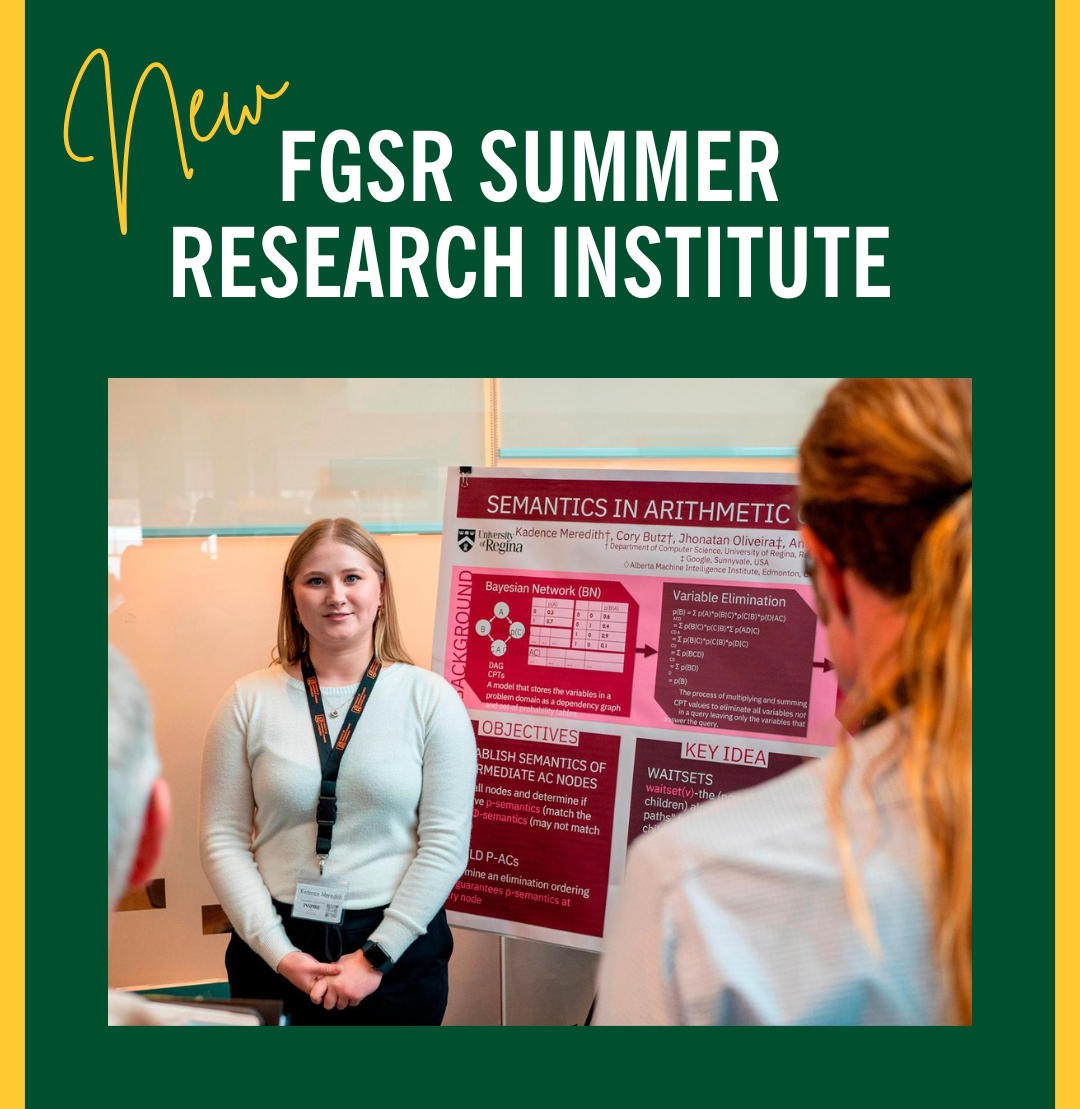 Are you a grad student doing exciting and interesting thesis research?
Are you a grad student doing exciting and interesting thesis research?
Consider joining the new Summer Research Institute.
For all the details or to register, visit SRI here!
Upcoming Events
Our Alumni
Contact Us
graduate.studies@uregina.ca
Centre for Kinesiology, Health & Sport Floor 2A, Room 227
Staff List

